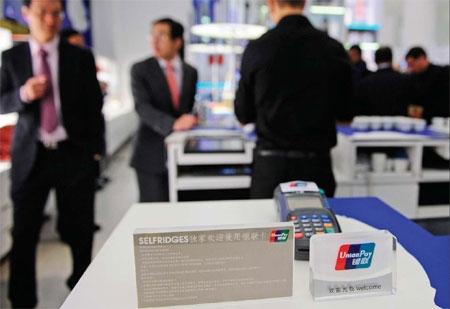Yu Chun, a bus driver, said she was talking from her own experience, as more and more passengers were asking her: "Driver, I can use Alipay, I don't have any change."
It has taken the country just a few years to embrace third-party mobile payments apps such as Alibaba's Alipay. In the big cities, it is now more important to carry a smartphone than a wallet. People can now effortlessly survive a day without cash, making all their payments digitally with a smartphone.
In fact, the growing popularity of digital payments is a worldwide trend. The European Union has been scaling down its issuance of large banknotes in recent years, and Denmark granted retailers the right to refuse cash payments last year. Indian Prime Minister Narendra Modi is also encouraging the use of digital payments.
A cashless society means not only more convenient and efficient exchanges between customers and retailers, but also the establishing of a credit-based society. The more people use mobile payments the easier credit supervisors can assess a person's credit record, including income and current financial status.
A cashless life also has the potential to break the barriers separating governmental payments, commercial exchanges, and individual consumption. A "cashless society" can be promoted as the foundation for public services, whether it is government's paying health insurance or social security, or people paying their taxes or parking fines.
However, as a cashless society emerges, it is also important to help the "digitally underprivileged", those who cannot use smartphones and mobile payments adeptly or simply do not have access to a smartphone.
(China Daily)




 A single purchase
A single purchase









